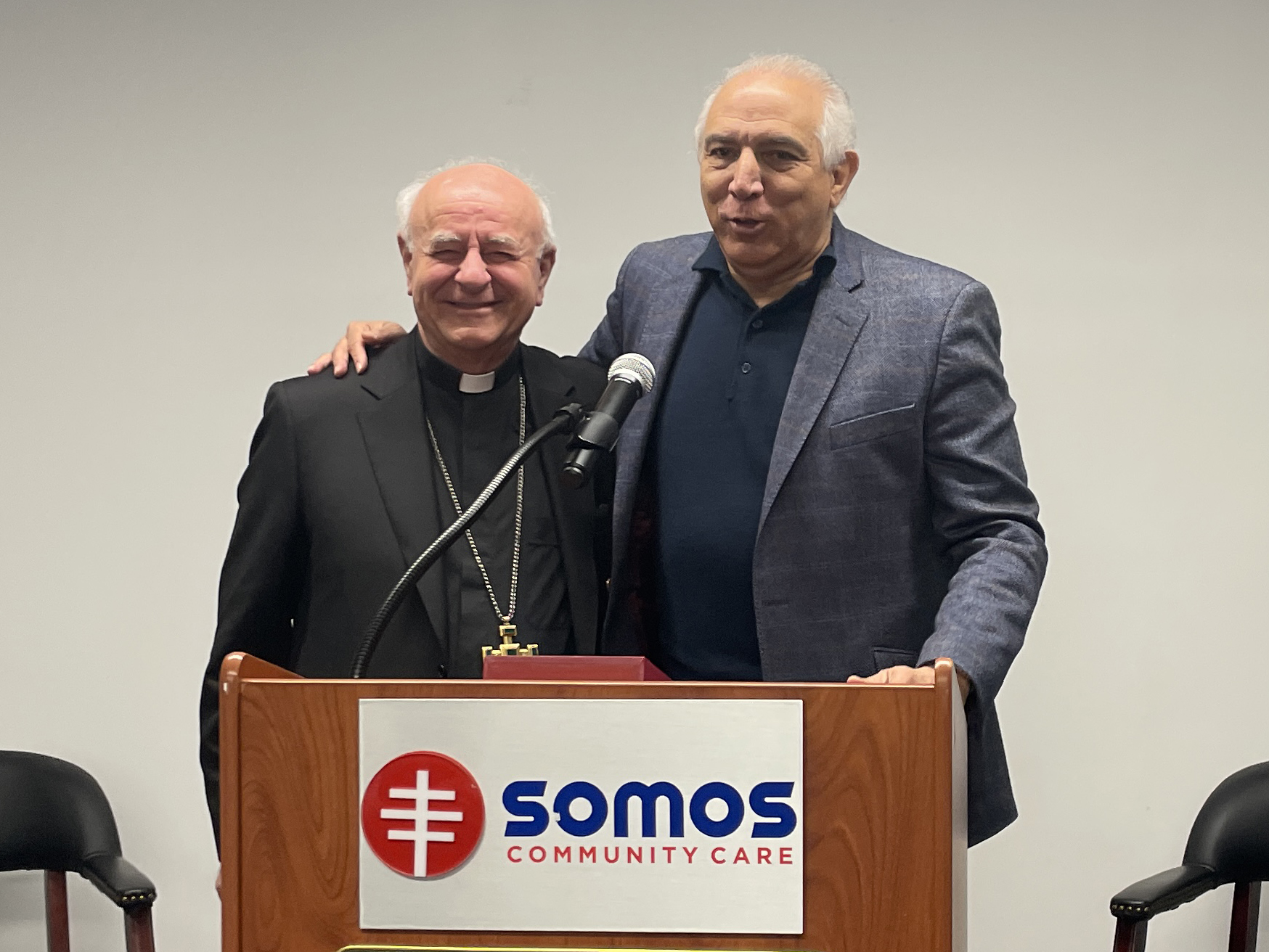
Inequalities in Access to Health Care
Wednesday, 30th March 2022
New York City, March 30, 2022-. "How can we possibly argue that life and health are fundamental values if we don’t also worry about the real conditions that create the inequalities affecting people's lives and health?" With this question, Archbishop Vincenzo Paglia, President of the Pontifical Academy for Life, opened the conference held in New York, at the headquarters of Somos Community Care – a medical and health care network operating in the United States and other countries. Archbishop Paglia had already met representatives of the network during his trip to Santo Domingo last fall.
Speaking on the subject of "Inequalities in Access to Health Care", Archbishop Paglia examined the existing inequalities and then identified different measures to overcome them. First of all, he noted that inequalities in medicine are heavily influenced by political, social and health choices. Policymakers have the task of "finding a proper balance between prevention, access to services and access to facilities, while pursuing integration with local communities and continuity of care". From a clinical perspective ,"it is necessary to invest in the doctor-patient relationship, especially at a more basic level, in order to reduce waste of medications and excessive requests for services, which are sometimes justified by the economic benefits for the health system but not for the patients". Health policies should "focus on the development of well-trained and motivated medical professionals by implementing a process of humanization of medicine."
Archbishop Paglia explained that in order to overcome inequalities, it is "necessary to learn from the lesson of the pandemic. Access to prevention, diagnosis and treatment should be universal and not available to only a few. The distribution of Covid-19 vaccines is a perfect example. The only acceptable goal is access for all, without exception," which can be achieved through a "new alliance between science and humanism. Covid-19 has shown us how containment measures must be integrated with a widespread and profound search for the common good, rejecting treatment criteria based on random parameters such as citizenship, income, or age." In this sense, "as emergency medicine has been teaching us, rationing care is the last possible option. We must intensify the search for treatments and resources, based on principles of justice and solidarity, and come up with creative solutions to not exclude anyone", as instead happened during the most critical phase of the Covid-19 pandemic.
“Dear friends,” Archbishop Paglia concluded, “history is changing. The reality we live in fully absorbs our intellectual resources and requires passion as well as personal and collective commitment. The complexity of the situation and the extraordinary difficulties we face (we cannot forget the war in Ukraine, another terrible tragedy in addition to Covid-19) increase the need for our shared commitment and solidarity".
pressoffice@pav.va
New York City, March 30, 2022
Back to Newsroom